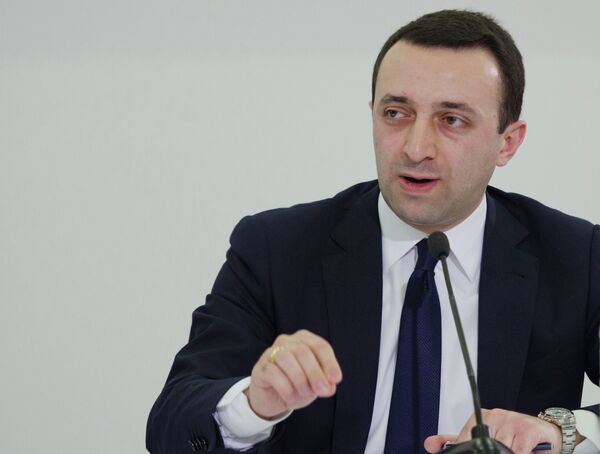TBILISI, November 2 (RIA Novosti) – Georgian Prime Minister Bidzina Ivanishvili has nominated the country’s interior minister to replace him when the billionaire politician steps down later this month.
Ivanishvili announced 31-year-old Irakli Garibashvili, a long-time associate, as his chosen successor Saturday to take over as head of government of the former Soviet state.
“Irakli Garibashvili has shown during his time in the [interior] ministry that he will also be a worthy prime minister. The premier will have more power, and Irakli will suit this post,” Ivanishvili said.
Presidential powers have been limited as a result of constitutional reform under outgoing President Mikhail Saakashvili to transform Georgia from a presidential republic into a parliamentary one. Under the amendments made to the constitution, after the inauguration of President-elect Giorgi Margvelashvili on November 17, the government will be vested with supreme executive powers and its head will be the most powerful political office.
Ivanishvili, a tycoon whose fortune Forbes magazine puts at $5.5 billion, has said he will leave politics on November 24, a week after the inauguration of his close ally Margvelashvili, who won the South Caucasus nation’s presidential election last weekend.
Ivanishvili led the Georgian Dream party to a crushing victory of Saakashvili’s United National Movement in parliamentary polls last fall.
Margvelashvili has promised to improve ties with Russia, with whom Georgia fought a brief war under Saakashvili in 2008, as well as to continue policies of integration with the EU and NATO.
Last weekend’s election marked the end of a decade in power for Saakashvili, a Columbia Law School graduate who enjoyed broad public support early in his presidency after he swept to power following Georgia's 2003 Rose Revolution and carried through successful institutional reforms. But a disastrous defeat in the war with Russia contributed to a later precipitous drop in his approval ratings.
Ivanishvili has said he intends to devote his energy to developing the civil sector after leaving politics.


